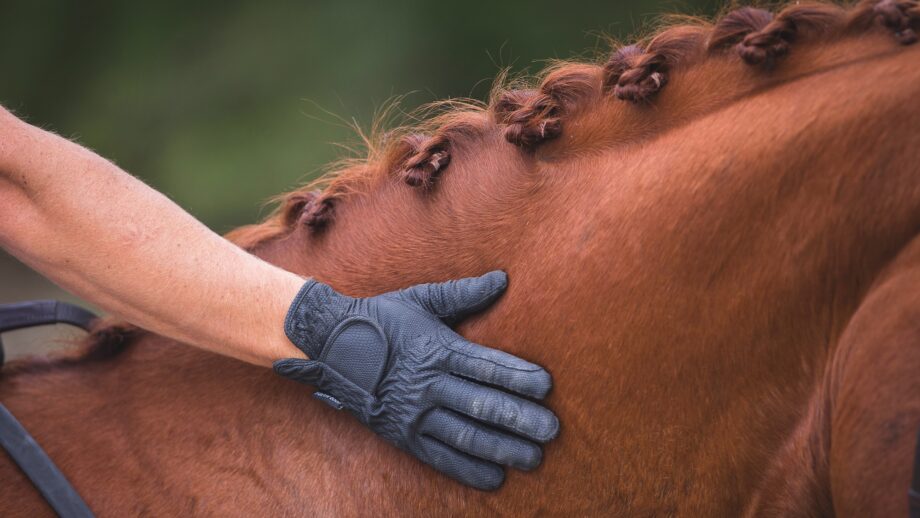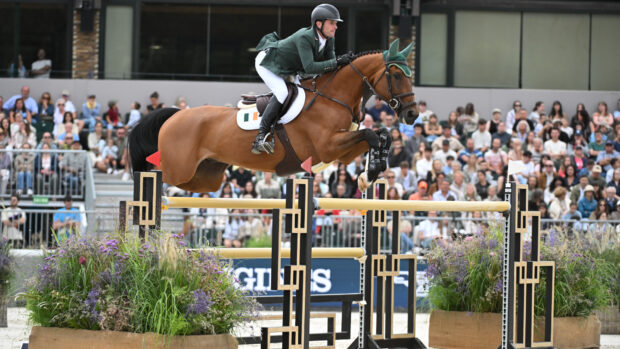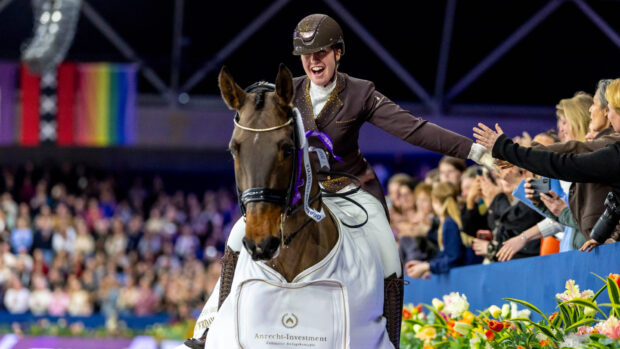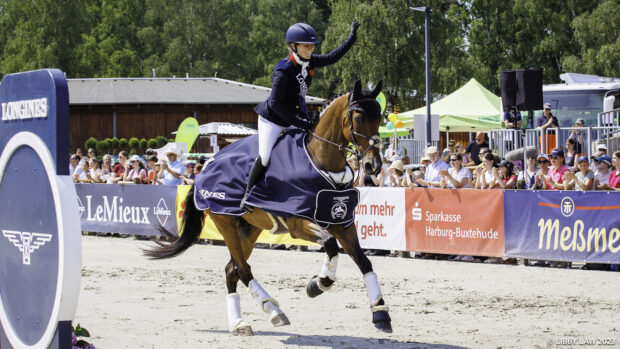Sport horses may need to be ridden and competed to enjoy their best lives – but how do we show the public and ourselves that our horses enjoy what they’re doing?
These were some issues raised during a “moral maze” session at the 2025 British Equine Veterinary Association Congress (11–13 September).
Panellists considered whether involving horses in sport is to their benefit or detriment. The main themes were welfare and longevity and whether horses are able not just to perform but “to live well throughout their whole athletic lives and beyond”. The others were public acceptance and scrutiny, the influence of money and economics on horse sport and welfare, and governance, “whether equestrian sport is structured to generally protect horses”.
Professor of veterinary ethics Madeleine Campbell said public focus on involvement of animals in sport has become “quite incoherent”. And the view seems to be that there is an ethical difference between that and any other human-animal interaction, “because it’s trivial”.
“I don’t accept that,” she said. “My view is that every human use of non-human animals, apart from in medical science, is essentially trivial. We don’t need to eat meat or keep them as companions… there’s nothing ethically distinct about using animals in sport.”
Prof Campbell said she thinks animals’ involvement in sport has been classed with their use in entertainment, such as circuses, which she does not accept, as knowledge about horses and dogs is now so advanced, we can meet their welfare needs, unlike circus animals’.
“The fact that we know what their welfare needs are makes their use in sport ethically acceptable, ethically justifiable, providing we do indeed meet their welfare needs,” she said.
“I think we have to speak calmly and sensibly in the public space and to try to explain all this.”
Ethics and acceptance
She added that ethics and welfare and public acceptance are separate.
“Ethics is whether we ought to do something, and part of our decision-making process relies on welfare science; what we know about the welfare impacts on the horse,” she said.
“They’re part of this conversation around social licence to use animals in sport. But there’s a risk when we talk about social licence a lot that it sounds as if we’re concerned about simply maintaining it, whereas I genuinely believe what we as professionals are concerned about is welfare and health of horses. Essentially, providing we get that right, social licence will be maintained.”
Speakers agreed that if horse sport waits for the public to act, it will be too late. A huge amount of work is being done, but we must make that clear to combat the vocal nature of those opposed to equestrianism.
Performance horse consultant and top vet Peter “Spike” Milligan said if people are happy for horses to be domesticated and ridden, involving them for sport is the next step.
“I think we’d all be aware there are horses suffering from potentially limited welfare within a pleasure horse setting, dependent on the knowledge and training abilities of the rider,” he said.
“But due to the domestication of horses, and largely because of how amenable they are to human interaction, we have a population of horses that, due to their breeding and genetics, really require sport and training to be fulfilled, happy and enriched – and that’s something I feel very strongly about.”
Welfare linchpins
Mr Milligan says he sees vets as the “linchpin” of maintaining good welfare.
“I think we have a huge level of responsibility for that,” he said. “Yes, the structures from the FEI and other jurisdictions can take an oversight role, but our own inherent morals and values – we need to make sure that we are ultimately the bastions for welfare, for our sports horses.”
Mr Milligan said ridden horses benefit from being engaged and enriched by training, that everyday training is the “baseline” of each horse’s welfare, and that he has concerns about unregulated unaffiliated competition. But, he added, we should be aware of concerns about elite sport.
“It only takes the odd snippet of video to end up on social media. To be judged on some of your worst moments is tough, but these high-level professionals do need to be accountable,” he said. “And I believe the accountability needs to be more public. To be seen to care, the response should not be ‘I got caught,’ but ‘I need to reflect on this.’”
A good life
The final speaker, World Horse Welfare CEO Roly Owers, said a real challenge is ensuring horses have a good life, from their perspective rather than ours, and then demonstrating to the public – and ourselves – that horses enjoy sport.
“This is now a global issue. I think if the sector can work together better globally and ensure they do invest in research, it’s that evidence that will help us make sure we’re doing the right things with our horses. And that’s obviously a very good and clear justification to the public about why it can be ethically acceptable to involve horses in sport,” he said.
“But we’re not here to make ourselves look good. That is a secondary issue. It’s about doing what is right for our horses, and that should be at the centre of our thinking, always.”
- To stay up to date with all the breaking news from major shows throughout 2025, subscribe to the Horse & Hound website
You may also be interested in:
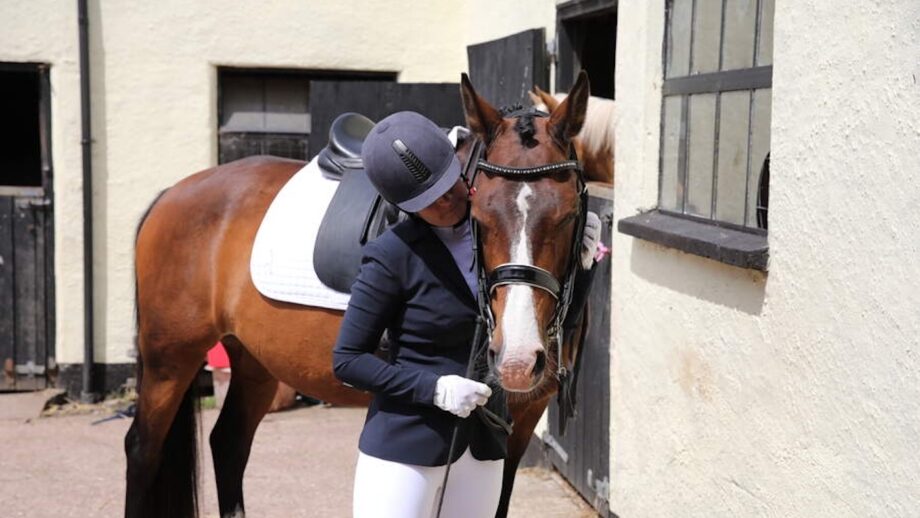
‘The elite level can’t do this alone’: why horse sport needs independent oversight to thrive

Exam proposed to own horses – but ‘the best PR is doing the right thing’

What the public thinks of whips and spurs – and whether sport horses have good lives

Subscribe to Horse & Hound magazine today – and enjoy unlimited website access all year round

